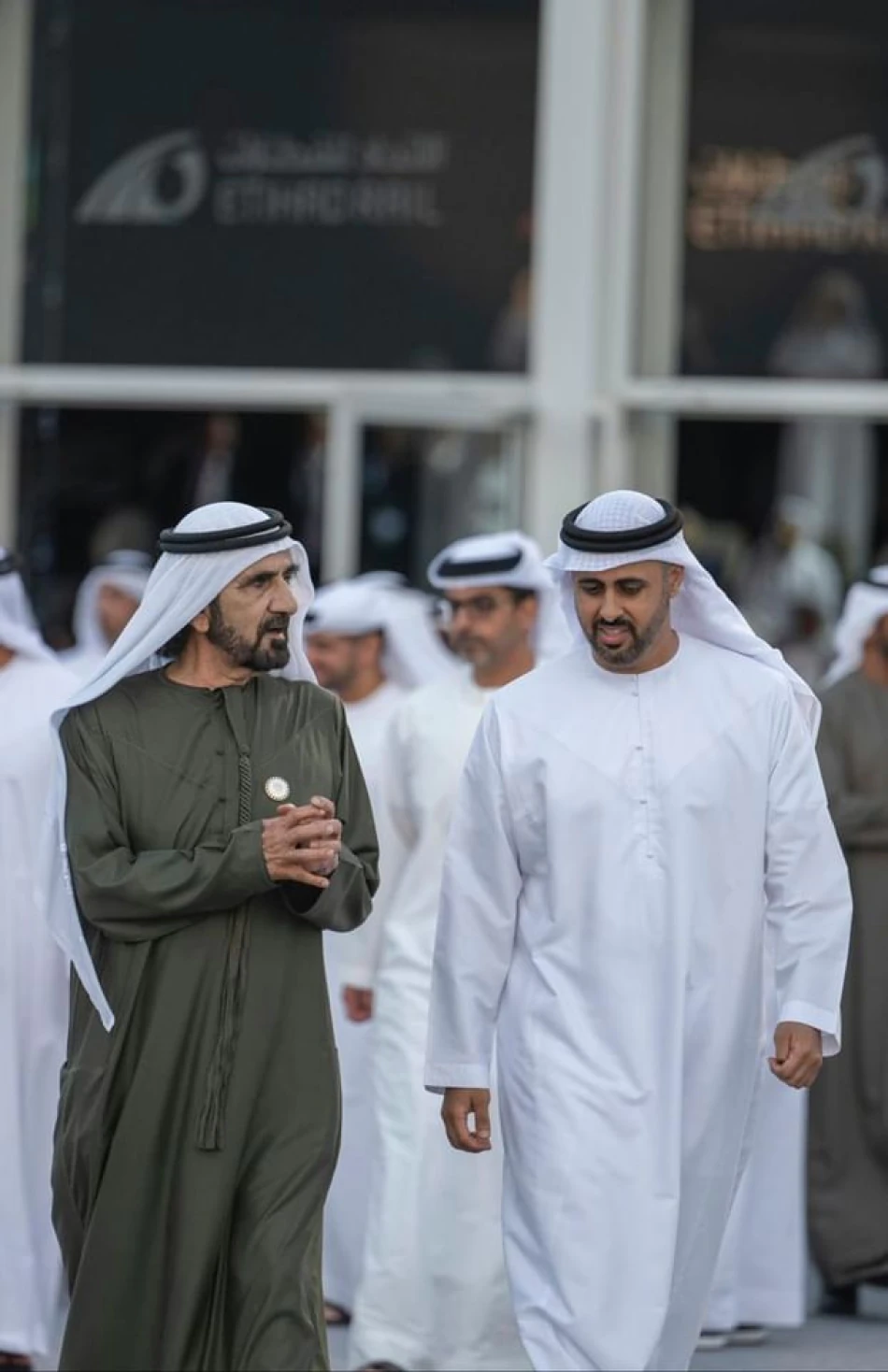
UAE Royal Hails Visionary Leadership of Sheikh Mohammed bin Rashid
UAE's Etihad Rail Project Gains Royal Momentum as Leadership Inspects Key Dubai-Fujairah Route
The UAE's ambitious Etihad Rail project received a significant boost as Sheikh Mohammed bin Rashid Al Maktoum, Vice President and Prime Minister of the UAE and Ruler of Dubai, personally inspected the railway line during a journey from Dubai to Fujairah. The high-level visit underscores the strategic importance of the national rail network in the UAE's infrastructure development plans and signals accelerated progress toward connecting all seven emirates by rail.
A Personal Touch to National Infrastructure
Sheikh Dhiyab bin Mohammed bin Zayed Al Nahyan, Deputy Chairman of the Presidential Court for Development Affairs and Martyrs' Families and Chairman of Etihad Rail, penned a heartfelt letter to Sheikh Mohammed following the inspection visit. The correspondence reveals the deep personal investment UAE leadership maintains in major infrastructure projects, moving beyond ceremonial oversight to hands-on engagement.
The letter emphasized how the leadership's field presence serves as "a source of inspiration" for project teams and "a driving force to achieve great expectations and ambitions." This approach reflects the UAE's distinctive governance model, where senior officials maintain direct involvement in project execution rather than delegating oversight entirely to technocrats.
Strategic Infrastructure in a Competitive Region
The Dubai-Fujairah rail connection represents more than domestic transportation infrastructure—it's a critical component of the UAE's strategy to maintain its position as the Middle East's logistics and trade hub. The route directly links Dubai's commercial centers with Fujairah's strategic ports on the Arabian Sea, bypassing the congested Strait of Hormuz for certain cargo flows.
Regional Railway Race
The UAE's rail ambitions mirror similar mega-projects across the Gulf. Saudi Arabia's ambitious NEOM railway and the broader Gulf Cooperation Council railway network create both opportunities for regional connectivity and competitive pressure to deliver world-class infrastructure. The UAE's advantage lies in its compact geography and established logistics ecosystem, making rail integration more immediately viable than in larger neighboring countries.
Economic and Investment Implications
For investors and businesses operating in the UAE, the Etihad Rail project represents a fundamental shift in logistics economics. The Dubai-Fujairah connection could significantly reduce transportation costs for goods moving between the emirate's financial and commercial centers and its eastern ports, particularly benefiting industries like petrochemicals, construction materials, and consumer goods.
The project also signals the UAE's commitment to economic diversification beyond oil and aviation. Rail infrastructure supports manufacturing and heavy industry development, sectors the UAE has targeted for growth under its Vision 2071 long-term development strategy.
Execution Model and Timeline Pressures
The personal involvement of senior leadership in project monitoring reflects lessons learned from global infrastructure development. Unlike many countries where mega-projects suffer from bureaucratic delays and cost overruns, the UAE's model of direct executive oversight has historically delivered projects on schedule—from Dubai Metro to Dubai International Airport expansions.
However, the Etihad Rail project faces unique challenges. Connecting seven emirates across diverse terrain while maintaining operations in one of the world's busiest logistics corridors requires precision engineering and coordination. The leadership's field inspections likely serve both motivational and quality control functions, ensuring technical standards meet the UAE's reputation for infrastructure excellence.
Broader Vision for Transportation Integration
The rail project integrates with the UAE's broader transportation ecosystem, including Dubai Metro, Abu Dhabi's planned rail network, and the country's extensive highway system. This multimodal approach positions the UAE to handle projected increases in both passenger and freight traffic as the country's population and economy continue expanding.
For the region's logistics industry, successful completion of the Etihad Rail network could reshape trade routes and cargo handling patterns, potentially strengthening the UAE's competitive position against other regional hubs like Qatar and Kuwait.
Most Viewed News

 Sara Khaled
Sara Khaled






